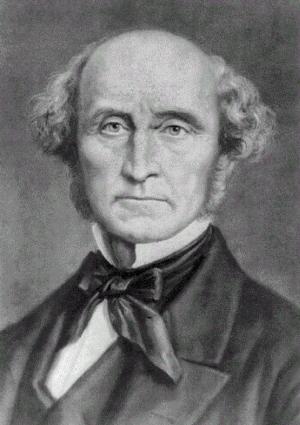| Author: | Douglas Patterson | ISBN: | 9781301746248 |
| Publisher: | Douglas Patterson | Publication: | January 24, 2013 |
| Imprint: | Smashwords Edition | Language: | English |
| Author: | Douglas Patterson |
| ISBN: | 9781301746248 |
| Publisher: | Douglas Patterson |
| Publication: | January 24, 2013 |
| Imprint: | Smashwords Edition |
| Language: | English |
In this book, I focus on economics at a very basic level. Using American psychologist Abraham Maslow’s triangle as a conceptual framework, I define wealth in terms of our physiological and psychological needs, and I attempt to explain why we value those things that we do.
I have employed the phrase territorial imperative, first introduced in the mid-20th century by German zoologist and Nobel Laureate Konrad Lorenz, as the title to the first chapter of this book. Lorenz pointed to acquisition of turf as one of the basic economic drives of all life forms – both animal and plant. Every living being, he suggested, needs a place to put down its roots. Landless plants and animals have difficulty surviving
My discussion of economics will no doubt offend some moralists, as I describe what can only be dubbed a survival-of-the-fittest approach to the acquisition and the defense of property. In the struggle for control of turf, the fittest individuals and tribes always have the upper hand.
I take issue, however, with the rugged individualist’s boast of self-sufficiency that has been so popular among libertarians in this country. No human on his own can possess and cultivate and defend a large territory. Neither can a small rag tag tribe of primitive people successfully control and defend the property that it claims, when they are invaded by more powerful and numerous forces.
Those tribes who allow their birthrate to decline, place themselves in jeopardy.
Those who fail to innovate may one day find themselves in trouble.
The importance of cooperation and interdependence within a human community cannot be overstated. In order to develop into an effective socio-economic unit its members must work together. The society is healthiest when all of its physically and mentally able citizens are actively employed and receive just compensation for their efforts.
A society really shows its strength when it provides on a reasonable level for of those who can not take care of themselves.
Since this book has been written with American teenagers and young adults in mind, I hope to impress upon them what a valuable asset their American citizenship rights are. For those who may not have probed very deeply on this subject, I hope also to increase their awareness of the debt that we moderns owe to those who built this country into the powerful and compassionate nation that it has become.
In addition to dealing with philosophical issues, I describe economic theories in as simple terms as I can; and I also provide some insights into the nature of money and the ways in which our economy actually works. Those who rail against government involvement in our economy apparently do not have the foggiest understanding of the operation of the Federal Reserve Banks or of the importance of tax and spending policies of the federal, the state and the local governments.
I do not hold myself forth as an authority in the field of economics. What I am offering are what I believe to be common sense observations about ways by which the wealth has been acquired and created and apportioned in human communities.
As a retired teacher, I always have teenagers and young adults in mind as I write.
In this book, I focus on economics at a very basic level. Using American psychologist Abraham Maslow’s triangle as a conceptual framework, I define wealth in terms of our physiological and psychological needs, and I attempt to explain why we value those things that we do.
I have employed the phrase territorial imperative, first introduced in the mid-20th century by German zoologist and Nobel Laureate Konrad Lorenz, as the title to the first chapter of this book. Lorenz pointed to acquisition of turf as one of the basic economic drives of all life forms – both animal and plant. Every living being, he suggested, needs a place to put down its roots. Landless plants and animals have difficulty surviving
My discussion of economics will no doubt offend some moralists, as I describe what can only be dubbed a survival-of-the-fittest approach to the acquisition and the defense of property. In the struggle for control of turf, the fittest individuals and tribes always have the upper hand.
I take issue, however, with the rugged individualist’s boast of self-sufficiency that has been so popular among libertarians in this country. No human on his own can possess and cultivate and defend a large territory. Neither can a small rag tag tribe of primitive people successfully control and defend the property that it claims, when they are invaded by more powerful and numerous forces.
Those tribes who allow their birthrate to decline, place themselves in jeopardy.
Those who fail to innovate may one day find themselves in trouble.
The importance of cooperation and interdependence within a human community cannot be overstated. In order to develop into an effective socio-economic unit its members must work together. The society is healthiest when all of its physically and mentally able citizens are actively employed and receive just compensation for their efforts.
A society really shows its strength when it provides on a reasonable level for of those who can not take care of themselves.
Since this book has been written with American teenagers and young adults in mind, I hope to impress upon them what a valuable asset their American citizenship rights are. For those who may not have probed very deeply on this subject, I hope also to increase their awareness of the debt that we moderns owe to those who built this country into the powerful and compassionate nation that it has become.
In addition to dealing with philosophical issues, I describe economic theories in as simple terms as I can; and I also provide some insights into the nature of money and the ways in which our economy actually works. Those who rail against government involvement in our economy apparently do not have the foggiest understanding of the operation of the Federal Reserve Banks or of the importance of tax and spending policies of the federal, the state and the local governments.
I do not hold myself forth as an authority in the field of economics. What I am offering are what I believe to be common sense observations about ways by which the wealth has been acquired and created and apportioned in human communities.
As a retired teacher, I always have teenagers and young adults in mind as I write.















